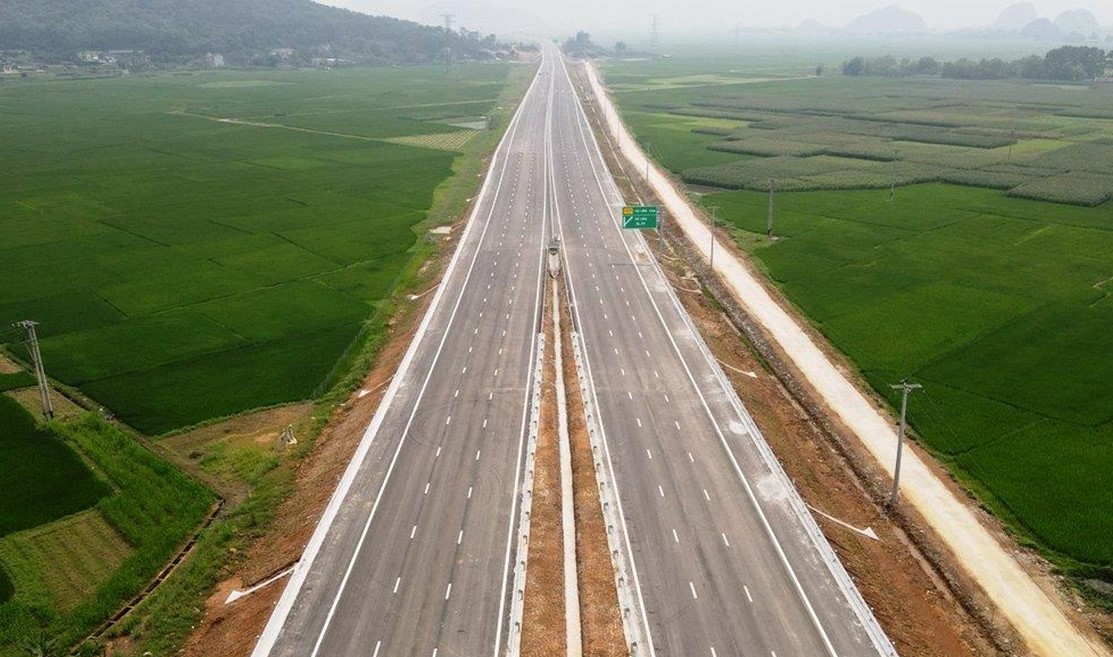G-7 Nations Debate Lowering Tariffs On Chinese Imports: A Closer Look

Table of Contents
The Arguments for Lowering Tariffs on Chinese Imports
Reducing tariffs on Chinese imports presents several compelling arguments, both economically and geopolitically.
Economic Benefits
Lowering tariffs could translate into significant economic benefits for G7 nations and the global economy.
- Lower Consumer Prices: Reduced tariffs directly lower the cost of imported goods, making a wide range of products more affordable for consumers. This increase in purchasing power stimulates consumer spending and overall economic activity.
- Increased Access to Goods and Services: Lower Chinese import tariffs open up access to a wider variety of goods and services not readily available domestically, increasing consumer choice and competition.
- Boosting Economic Growth: Increased trade volume, facilitated by tariff reductions, can significantly boost economic growth. Businesses gain access to cheaper inputs, leading to increased productivity and profitability.
- Reduced Inflationary Pressures: Lower input costs for businesses, resulting from cheaper imported materials, can help mitigate inflationary pressures and stabilize prices.
Specific Examples: Lower tariffs on electronics could lead to significantly cheaper smartphones and laptops for consumers. Reduced tariffs on raw materials like steel could lower manufacturing costs for automobiles and other goods.
Geopolitical Considerations
Beyond the economic benefits, lowering tariffs on Chinese imports offers potential geopolitical advantages.
- Improved Sino-G7 Relations: Reducing trade tensions through tariff reduction can foster better relations with China, leading to increased cooperation on global issues like climate change and pandemic response.
- De-escalation of Trade Wars: Lowering Chinese import tariffs can signal a willingness to de-escalate trade wars, reducing global economic uncertainty and fostering a more stable international trading environment.
- Strengthening Global Supply Chains: Reducing reliance on protectionist measures can contribute to the resilience and efficiency of global supply chains, reducing disruptions and vulnerabilities.
Specific Examples: Improved relations could lead to collaborative efforts on technological advancements or joint investments in infrastructure projects.
The Arguments Against Lowering Tariffs on Chinese Imports
Despite the potential benefits, there are significant arguments against lowering tariffs on Chinese imports.
Concerns about Unfair Trade Practices
A major concern revolves around China's history of unfair trade practices.
- Intellectual Property Theft: China's record on intellectual property rights protection remains a significant concern for many G7 nations. Lowering tariffs without addressing this issue could incentivize further intellectual property theft.
- Dumping: The practice of dumping—selling goods below cost to gain market share—is a major concern. Lowering tariffs could exacerbate this, harming domestic industries.
- National Security: Reducing reliance on Chinese goods in strategically sensitive sectors like technology and defense is crucial for national security. Lower tariffs could undermine these efforts.
Specific Examples: The theft of patented technologies from Western companies has cost billions of dollars. Dumping of steel has severely impacted domestic steel producers in several G7 countries.
Human Rights and Labor Concerns
The human rights record of China is another major factor weighing against tariff reductions.
- Forced Labor: The widespread use of forced labor in China's supply chains is a serious ethical concern. Lowering tariffs could inadvertently support these practices.
- Leveraging Tariffs for Human Rights Improvements: Some argue that maintaining tariffs provides leverage to pressure China to improve its human rights record.
- Ethical Considerations: Supporting a regime with questionable human rights practices through increased trade raises serious ethical dilemmas.
Specific Examples: The use of Uyghur forced labor in the cotton industry is a widely documented human rights abuse.
Potential Consequences of Lowering Tariffs
Lowering tariffs on Chinese imports would have far-reaching economic, geopolitical, and social consequences.
Economic Impacts
The economic impact would vary across sectors. Manufacturing sectors heavily reliant on imported Chinese goods might benefit from lower input costs, while others could face increased competition. Agriculture could experience both opportunities and challenges, depending on the specific products. The overall impact requires careful analysis, using detailed economic modeling to assess its effect on GDP growth, employment, and inflation.
Geopolitical Impacts
Lowering tariffs could significantly impact the G7's relationship with China and other global powers. It could lead to increased cooperation on various global issues or could exacerbate existing tensions depending on how China responds and whether it reciprocates the gesture. The impact on alliances and international relations requires careful strategic assessment.
Social Impacts
The social impact could include both job creation and job displacement. While lower prices could benefit consumers, some domestic industries could face increased competition, leading to job losses. The overall impact on employment, wages, and living standards requires a comprehensive analysis accounting for both winners and losers.
G-7 Nations Debate Lowering Tariffs on Chinese Imports: A Summary and Call to Action
The debate over lowering tariffs on Chinese imports involves a complex interplay of economic, geopolitical, and ethical considerations. While reduced tariffs offer potential economic benefits and opportunities for improved relations with China, concerns about unfair trade practices and human rights abuses remain significant obstacles. The potential consequences, both positive and negative, necessitate careful consideration and thorough analysis.
We urge readers to engage further with this critical issue. Research relevant policy documents from organizations like the WTO and OECD, participate in informed discussions, and contact your elected representatives to voice your opinions on G7 trade policy, Chinese import tariffs, and tariff reduction. This debate is far from over, and its outcome will significantly shape the global economic and geopolitical landscape for years to come. The future of international trade hinges on thoughtful engagement and informed decision-making regarding tariff reduction and the management of our relationship with China.

Featured Posts
-
 Pub Landlords Foul Mouthed Rant Staff Members Notice Leads To Explosive Outburst
May 22, 2025
Pub Landlords Foul Mouthed Rant Staff Members Notice Leads To Explosive Outburst
May 22, 2025 -
 Jeremie Frimpong Transfer News Latest Liverpool Fc Updates
May 22, 2025
Jeremie Frimpong Transfer News Latest Liverpool Fc Updates
May 22, 2025 -
 The Goldbergs Every Season Ranked And Reviewed
May 22, 2025
The Goldbergs Every Season Ranked And Reviewed
May 22, 2025 -
 Tim Hieu Ve Cau Va Duong Ket Noi Binh Duong Tay Ninh
May 22, 2025
Tim Hieu Ve Cau Va Duong Ket Noi Binh Duong Tay Ninh
May 22, 2025 -
 Sydney Sweeney Nova Filmska Uloga Zasnovana Na Viralnoj Reddit Prici
May 22, 2025
Sydney Sweeney Nova Filmska Uloga Zasnovana Na Viralnoj Reddit Prici
May 22, 2025
Latest Posts
-
 Dong Nai Keu Goi Xay Duong Cao Toc 4 Lan Xe Xuyen Rung Ma Da
May 22, 2025
Dong Nai Keu Goi Xay Duong Cao Toc 4 Lan Xe Xuyen Rung Ma Da
May 22, 2025 -
 De Xuat Xay Duong 4 Lan Xe Tu Dong Nai Den Binh Phuoc Qua Rung Ma Da
May 22, 2025
De Xuat Xay Duong 4 Lan Xe Tu Dong Nai Den Binh Phuoc Qua Rung Ma Da
May 22, 2025 -
 Dong Nai Kien Nghi Xay Dung Duong 4 Lan Xe Xuyen Rung Ma Da Noi Binh Phuoc
May 22, 2025
Dong Nai Kien Nghi Xay Dung Duong 4 Lan Xe Xuyen Rung Ma Da Noi Binh Phuoc
May 22, 2025 -
 Duong Cao Toc Dong Nai Vung Tau San Sang Thong Xe Vao Dip Le 2 9
May 22, 2025
Duong Cao Toc Dong Nai Vung Tau San Sang Thong Xe Vao Dip Le 2 9
May 22, 2025 -
 Tuyen Cao Toc Dong Nai Vung Tau Thong Tin Moi Nhat Ve Ngay Thong Xe
May 22, 2025
Tuyen Cao Toc Dong Nai Vung Tau Thong Tin Moi Nhat Ve Ngay Thong Xe
May 22, 2025
